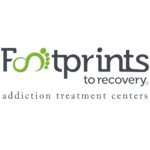Alcohol cravings are a normal part of recovery. They can come in many forms. When you crave alcohol, sometimes it’s a desire to get rid of something, like an uncomfortable feeling — you want to numb or dull emotional pain or relieve boredom. Other times it’s a longing to get something — like a feeling of confidence, relaxation, or better mood. Then there are times when alcohol cravings are related to slips in self-care. You aren’t getting enough sleep or eating right and drinking alcohol may seem like a way to feel better.
Though you’ve learned in alcohol addiction treatment that there are healthier ways to address these issues, it’s normal to sometimes lose sight of this. Urges to drink don’t mean you’re failing at recovery. You’ll likely always have alcohol cravings to some degree, but their voice will get much quieter the longer you’re sober. Learn how to reduce alcohol cravings and where to find help if you need it.
How to Stop Alcohol Cravings: 5 Ways
There isn’t a surefire way to “stop” alcohol cravings, but there are ways you can reduce alcohol cravings and give them less power over you. Keep in mind that it took time for your brain to form these associations with alcohol, and it will take time to break these strong connections in recovery for alcohol addiction. You may have alcohol cravings years after you stop drinking. The longer you’re in substance abuse recovery, the more practice you’ll have dealing with alcohol cravings and overcoming them.
Here are five ways to curb alcohol cravings:
- Play the tape
- Distract with healthy coping skills
- Call your sponsor, therapist, or a loved one
- Attend a recovery support group
- Plan ahead
1. Play the Tape
If you’ve been in alcohol addiction treatment, you’ve likely heard the phrase, “play the tape.” This is a way to remind yourself of what happens when you start drinking. When you have a craving for alcohol, play out in your mind like a videotape what has or will likely happen when you take a drink.
Imagine yourself drinking that one glass of wine at dinner. Think about what it tastes like, what it feels like, what you’re thinking while you drink it. Then, what happens? Just one more? A few alcohol tonics, because you tell yourself it’s just this one time, and you can handle it? Do you drive home drunk, stopping off at the liquor store and polishing off your purchase in one sitting? Do you text old drinking buddies? Make calls you shouldn’t? What happens the next day? You likely wake up hungover, furious with yourself. It starts a cycle of self-loathing and regret that won’t go anywhere good. Playing the tape is a good way to remind yourself that there’s no such thing as just one drink.
2. Distract With Healthy Coping Skills
Now is the time to call up those relapse-prevention skills you practiced in alcohol rehab. Hopefully, you’ve already been using many of these regularly. When you’re in the midst of a strong alcohol craving, it can be difficult to get in touch with healthy coping skills, so have a list at the ready of things to do instead of drinking.
One challenge people new to recovery face is replacing food with their drug of choice. There is no scientific data to support food can reduce cravings for alcohol or drugs. So be mindful the next time you have a craving and find yourself reaching for a bag of candy or chips. Think about why I am reaching for this? Is this the best way to overcome this craving?
Healthy coping skills are different for everyone. Common ones include:
- Exercise.
- Go for a walk.
- Do a hobby (play an instrument, knit, cook, paint, etc.).
- Meditate or mindfully sit with the feeling, knowing that it’s a wave that will pass.
- Call or visit someone you enjoy spending time with.
- Journal.
3. Call Your Sponsor, Therapist, or a Loved One
Pick up the phone — or do more. Stopping alcohol cravings may mean not just calling, but physically going to see one of your support people. This is especially true if isolation or loneliness is adding to your urge to drink. It can feel comforting to be in the presence of someone who knows your story and your struggle. They won’t judge or criticize, and instead can hold that difficult space for you until it passes. If your support system is unavailable, go to a non-threatening place that will have other people like a park or mall. Walk around and observe your environment. Sometimes just the presence of other people can help.
4. Attend a Recovery Support Group
It seems like a no-brainer but sometimes feels hard to execute in the moment, so put it on your list and have a way to access meeting times and locations easily. Go to an Alcoholics Anonymous meeting or one of the 12-step alternatives like SMART Recovery. This can be one of the most effective ways to stop alcohol cravings. Being with peers who understand what you’re going through and who provide a sense of safety and accountability is so powerful when you’re struggling.
5. Plan Ahead
You know your triggers, so do your best to avoid them. Sometimes it’s impossible, but if there’s a way to avoid situations that are triggering, do so. The recovering addicted brain still has strong associations to people, places, and things tied to your drinking. Avoid driving by the bars you used to frequent. Don’t hang out with people who are going to be drinking if it bothers you. Leave the family function early, or don’t attend at all. Your sobriety is sacred, so do what you need to do to protect it.
It’s also worth noting that there are some medication-assisted treatments for alcoholism. Currently, there are three medications approved by the FDA to help treat alcohol use disorders. Medications for alcohol addiction and withdrawal symptoms include:
- Naltrexone (Revia® and Vivitrol®)
- Disulfiram (Antabuse®)
- Acamprosate (Campral®)
Naltrexone can ease alcohol cravings by working on the same opioid receptors that send pleasure signals when you drink. Disulfiram can cause unpleasant effects when you drink alcohol, which may help you refrain from it. Acamprosate is mainly used for easing alcohol withdrawal symptoms. Only a medical professional can determine if any of these medications are appropriate for you. They can complement the recovery work you’re already doing like therapy, support groups, and practicing relapse-prevention skills.
Need Help?
Alcohol addictions and alcohol withdrawal can be dangerous and deadly. Alcohol abuse can cause long-term damage to your organs and puts you at risk for lethal withdrawal symptoms like delirium tremens (DTs), black outs, and seizures. If you become “shaky” when you’re not drinking, you must be medically detoxed, so you don’t have seizures that could lead to death. Never use medications to attempt your own detox. For example, mixing alcohol with benzos puts you at significant risk for overdose and death.
If you are concerned about your drinking or you’re struggling with alcohol relapse, we can help. Footprints to Recovery treatment facility addresses alcohol use disorders with effective and innovative therapies that keep you engaged in treatment.
You deserve to be building the life you deserve and discover how fulfilling recovery can be. Call us for a free, confidential consultation today.




